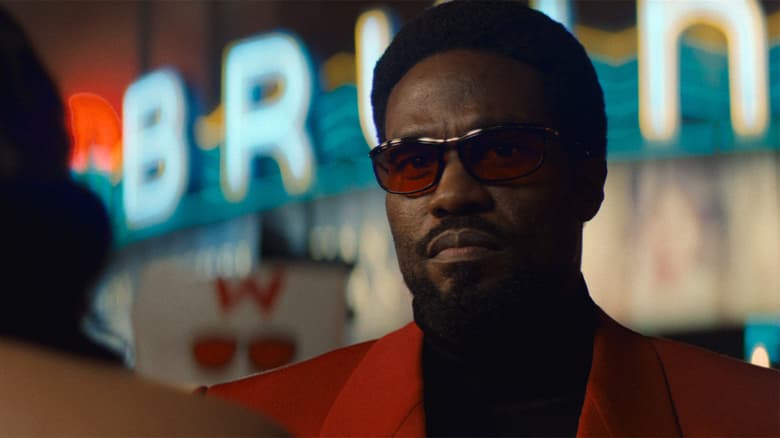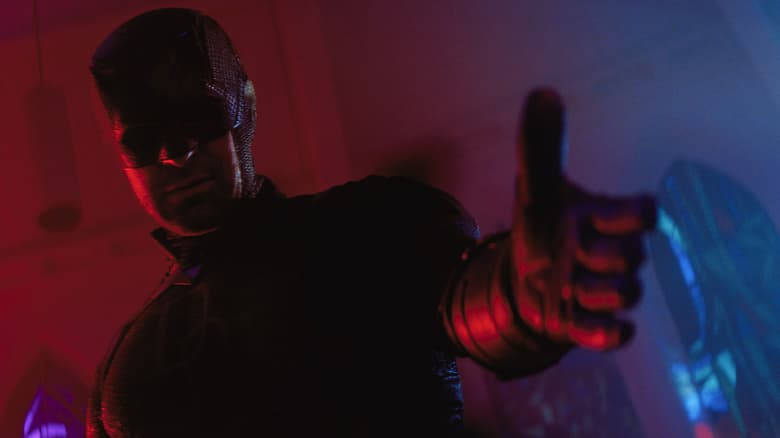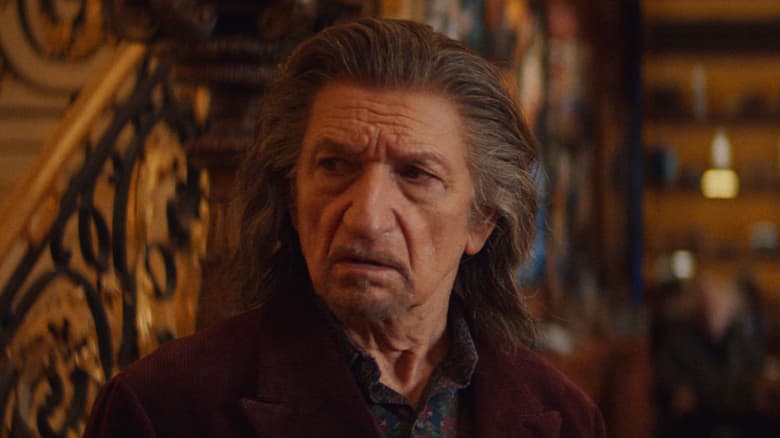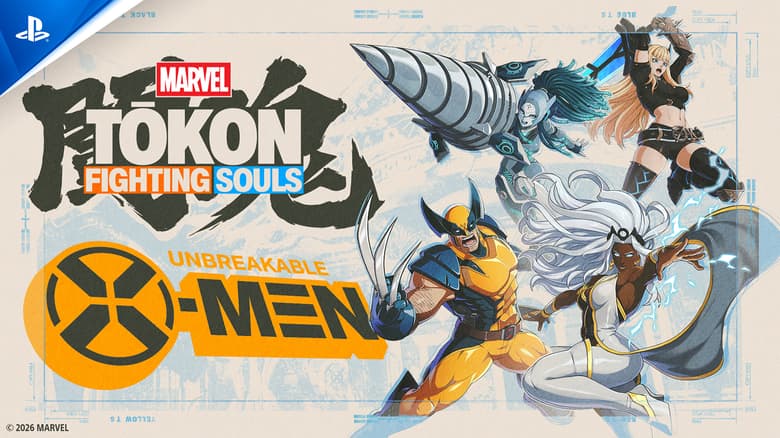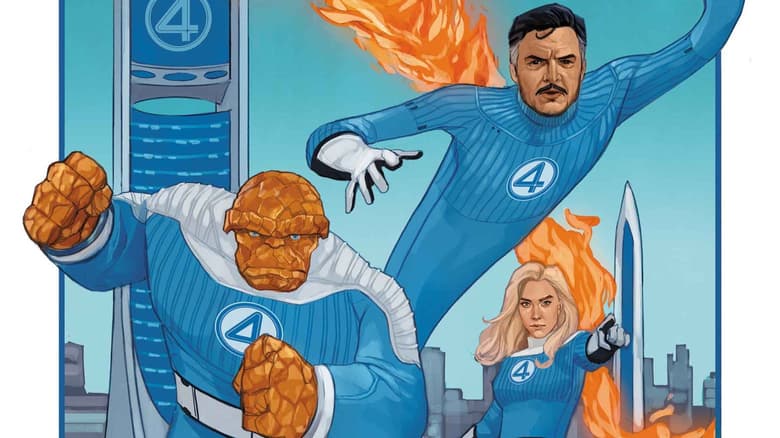Marvel’s 80th Anniversary: Talking ‘Crypt of Shadows’ with Al Ewing
Writer Al Ewing discusses Marvel’s history and his work on the horrific side of Marvel…

Like any spry 80-year-old, Marvel will be partying from sun up to sun down to celebrate its anniversary this year. Plenty of talent has shown up on the guest list including CRYPT OF SHADOWS #1 writer Al Ewing. Marvel.com chatted with Ewing about time-traveling through eras of Marvel, what makes the House of Ideas so enduring, and how it feels to horrify fans with his latest turn on CRYPT OF SHADOWS and THE IMMORTAL HULK.
Marvel.com: Looking back over all of Marvel's 80 years, is there a certain decade during which you wish you could have written for Marvel? What is it about that era that draws you to it?
Al Ewing: This one's a little tricky, because I'm coming at it from the present day, in the full knowledge of Marvel history—not to mention the old time-travel problem of whether you could survive in an earlier era. Could I get work done in a pre-email world?
All that aside, though, I feel like either it's the ‘80s, when the Marvel of my childhood was in full flow, and you had a whole bunch of runs that are still remembered as the greats today. Or maybe the late ‘60s/early ‘70s, when people were writing these very personal and political stories and attempting to push things in a really psychedelic, metaphorical direction, which is meat and drink to me.
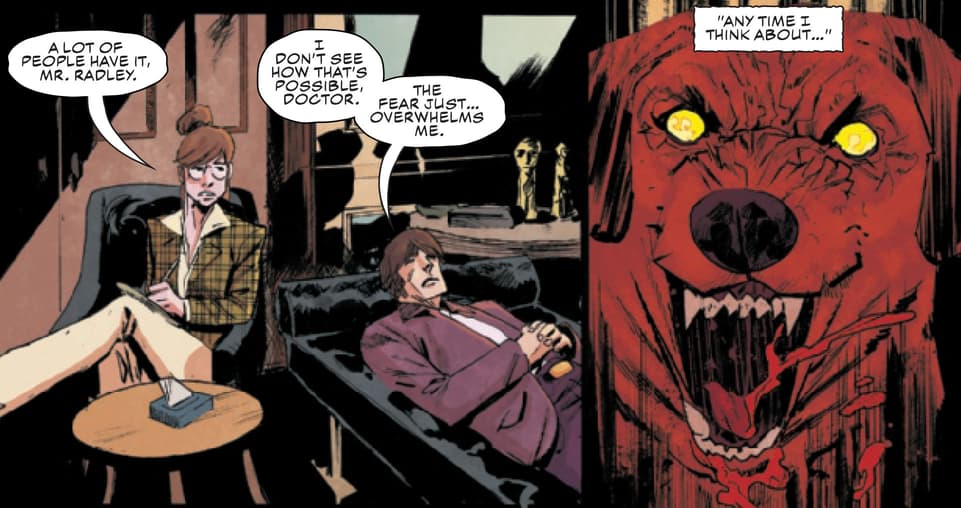
Marvel.com: What do you think it is about Marvel Comics that has made it such a viable artistic institution over the years? What makes Marvel a success currently in its 80th year?
Al Ewing: I think it honestly might be that Marvel's always been a bubbling chaotic mass of the deep personal issues of various creators. Marvel's never really been shy about injecting some very idiosyncratic material into their comics, whether it's Stan Lee playing the omniscient narrator as your buddy behind the curtain, Jack Kirby looking for answers to the big questions and pushing against the limits, Steve Ditko exploring everything from personal responsibility to the doors of perception through his own unique lens, Jim Steranko changing all the rules, Jim Starlin creating a cosmic opera in an Iron Man fill-in, Steve Gerber interrogating society through a talking duck, Jim Shooter interrogating society again only it's a crossover sequel in the eighties and it's kind of disturbing, Ann Nocenti changing all the rules again, the new kids in the ‘90s changing all the rules again... That's just a few edited highlights.
I was going to say there's no one thing you can point to that made Marvel, but that's not quite true—Marvel never rebooted. All this stuff is baked in, like layers of rock, and it's in the soil and the water and we can't get rid of it now. And we shouldn't.
Marvel.com: How do you feel Marvel has evolved over 80 years? Are there any features that have stayed consistent, for the good of the House of Ideas?
Al Ewing: I think the most consistent feature of Marvel is the "heroes with problems" idea. Marvel generally does Super Hero comics, and the Super Heroes in question are heroes not because they're powerful and stand above regular humanity, but because they're down on ground level with the people they fight for. They're weighed down with varying levels of problems and they do the hero thing anyway.
So, the Marvel heroes have always reflected people, and the situations people are in, and that's kind of what they're for. It helps people when they can see themselves in their heroes. I've had a lot of people come up to me over the past five years and tell me that a comic I did really helped them in a small way. And without wanting to get too hokey, that's a power, and a responsibility, and we shouldn't forget we have either.
Marvel.com: How did you end up on the CRYPT OF SHADOWS book? Did you chase it or was it offered?
Al Ewing: It was offered!
Jake Thomas asked if I had twenty pages in my schedule for an EC-style horror book with multiple artists, and it sounded like a lot of fun. I immediately started thinking about nested stories, classic horror-anthology framing sequences that are horror stories in themselves, and phobias. Judging by the responses, it came out great!
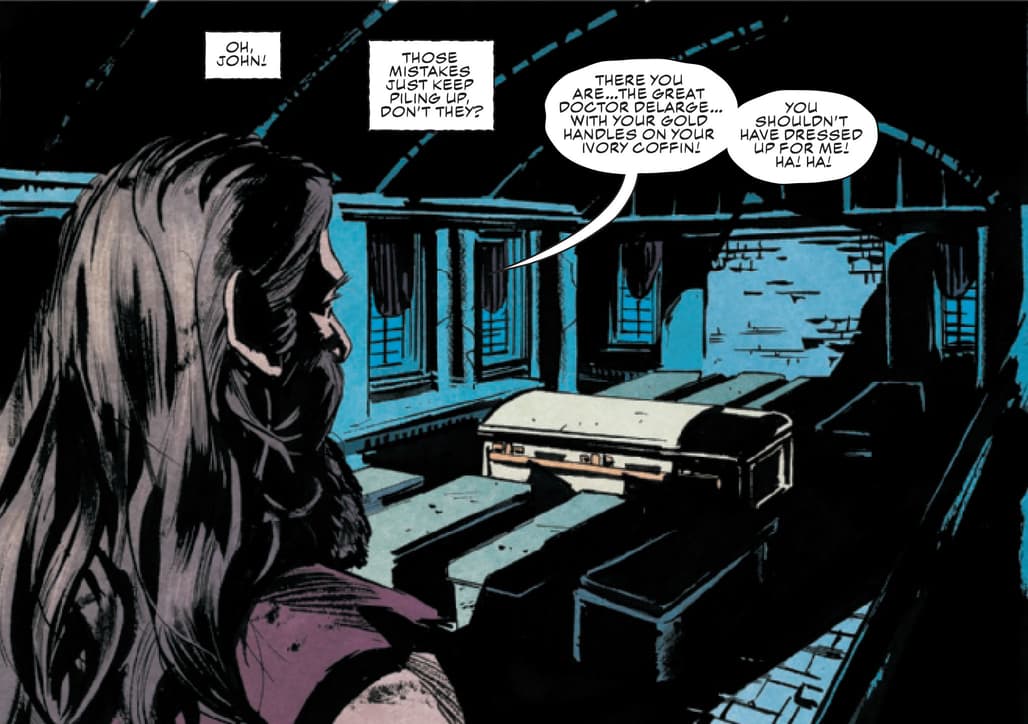
Marvel.com: As a writer and fan, what drew you to this horror title as your means of celebrating and honoring Marvel in its 80th year?
Al Ewing: Bizarrely, I'd never even heard of it before Jake brought it up. My ‘70s Marvel is psychedelic heroics, political muck-monsters, and the occasional pot-shot at Nixon. But as I said, it sounded like fun. I guess if that was the only way I was celebrating Marvel's 80th, it might be weird—not bad weird, but weird all the same—but fortunately I'm putting my hand to a couple of other celebratory bits and pieces which will be revealed in due time...
Marvel.com: For those who haven’t had a chance to see it yet, can you give fans a brief sketch of what is going on in SHADOWS?
Al Ewing: It's about a man in the 1970s visiting a psychiatrist to deal with his fear of dogs. From there, it spirals through two nested tales of terror until finally all the pieces fit together and readers get to see the whole horrible jigsaw assembled.
Marvel.com: It has not escaped the notice of many that your work in IMMORTAL HULK has had a distinctive horror edge to it. How, if at all, did HULK influence SHADOWS or vice versa? In terms of your approach for each, what is similar and what is different about the tales you are telling?
Al Ewing: SHADOWS was almost play. It's hopefully deeply horrific for readers and will stay with them once they've put it down, but it's also a nostalgic look back at ‘70s horror tropes—not to mention it's nostalgic for me, as I got my start with short twist-ending horror stories in the UK. So at the heart of it all is a fun celebration of the genre. I had fun, hopefully the artists had fun, and if you haven't read it yet, pick it up! You'll have fun.
IMMORTAL HULK, meanwhile, is the work. If SHADOWS is influenced by horror stories, HULK is influenced by religion, by psychology, by occultism, by Marvel history, by politics, by some of those deeply personal issues I mentioned earlier. There's a lot of stuff that goes in at a steady pace of three issues every two months. The advantage of that is that while SHADOWS can begin and end in 20 pages and hopefully make a great chilling read for people, HULK can be a massive, sprawling epic that touches all these different things and keep coming back month after month until we finally reach our crescendo. And I hope readers are along for that ride until it ends.
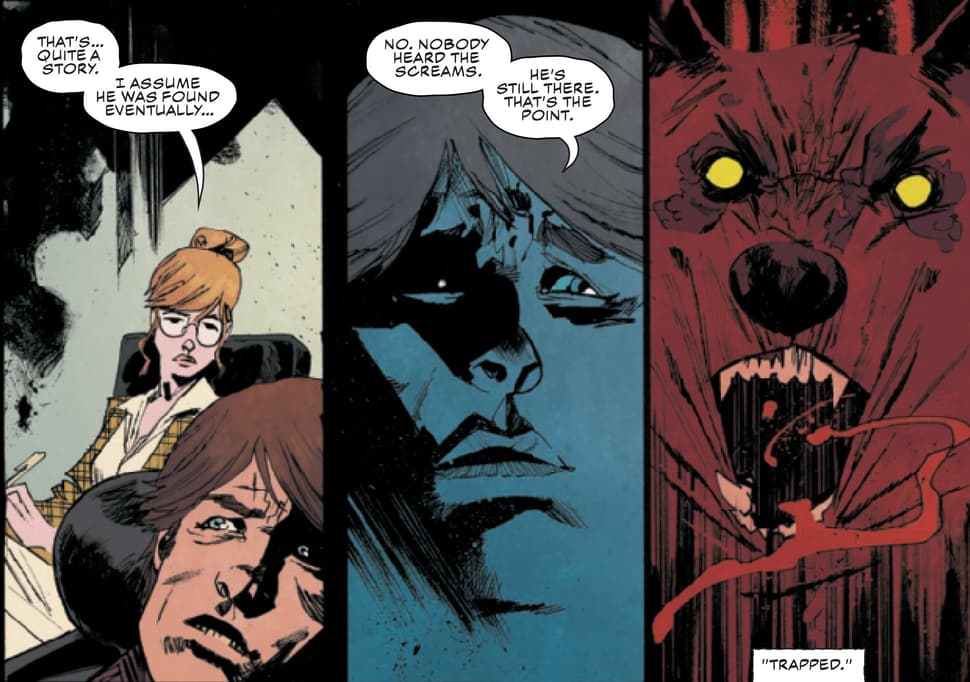
CRYPT OF SHADOWS #1, written by Al Ewing and featuring various artists, is available now online and at your local comic shop!
IMMORTAL HULK #12, by Ewing with art by Joe Bennett, is also available.
Stay tuned to Marvel.com for the celebration of Marvel’s 80th Anniversary!
The Daily Bugle
Can’t-miss news and updates from across the Marvel Universe!
